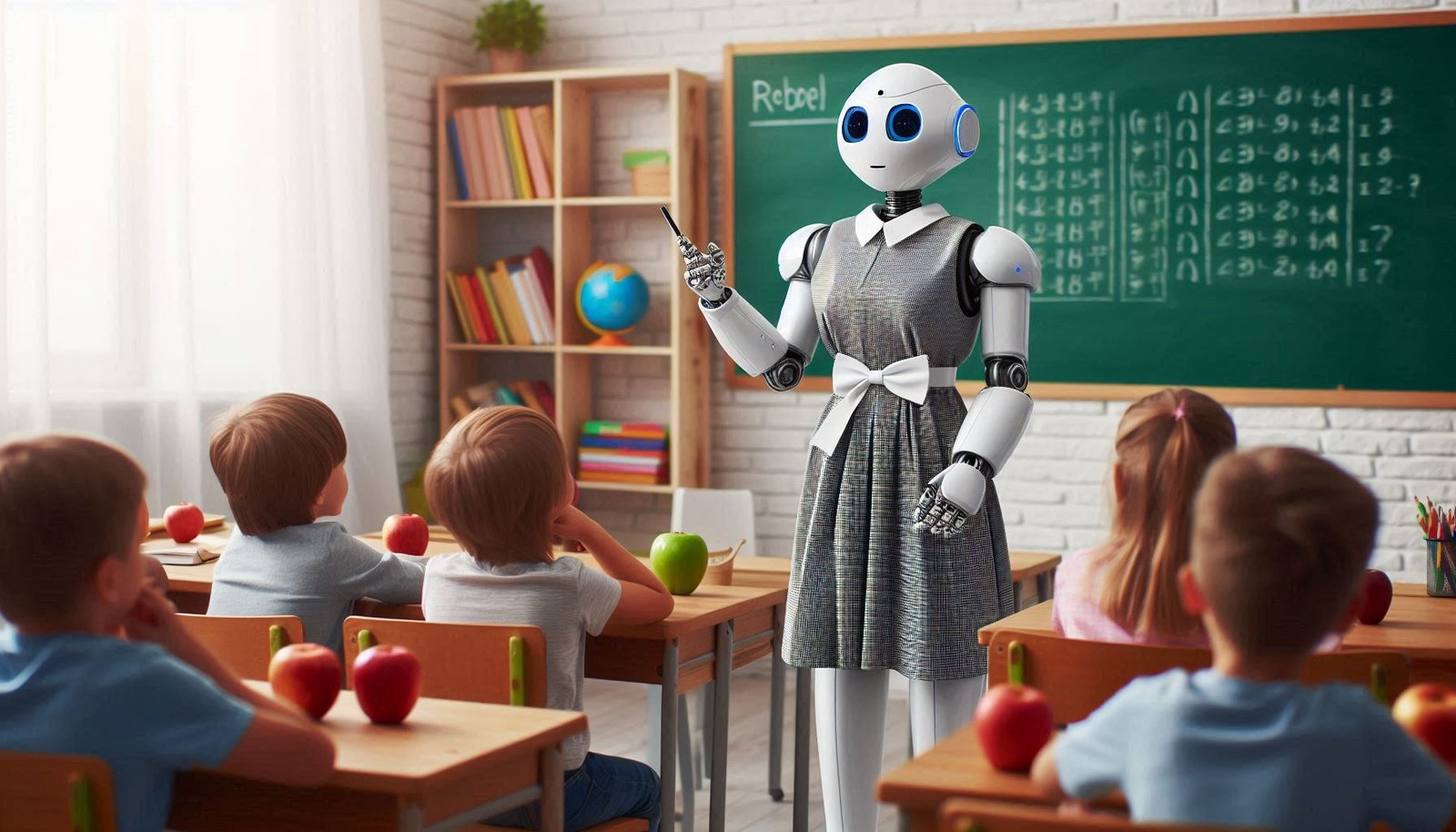
In recent years, the integration of AI technology in education has transformed the way students learn and teachers instruct. The advent of artificial intelligence (AI) has opened up new avenues for personalized learning, administrative efficiency, and enhanced educational experiences. This article explores the various applications of AI technology in the field of education, highlighting its benefits, challenges, and future potential.
Understanding AI Technology in Education
AI technology refers to the simulation of human intelligence processes by machines, particularly computer systems. These processes include learning, reasoning, and self-correction. In the context of education, AI technology can analyze vast amounts of data to provide insights that can improve teaching methods and learning outcomes.
Personalized Learning
One of the most significant applications of AI technology in education is personalized learning. Traditional education often follows a one-size-fits-all approach, which may not cater to the individual needs of each student. AI technology can analyze a student’s learning style, pace, and preferences to create a customized learning experience.
For instance, platforms like DreamBox Learning and Knewton use AI algorithms to adapt the curriculum based on the student’s performance. This technology allows students to progress at their own pace, ensuring that they fully understand a concept before moving on to the next.
Intelligent Tutoring Systems
Intelligent tutoring systems (ITS) are another application of AI technology in education. These systems provide personalized feedback and guidance to students, mimicking the experience of having a personal tutor. By utilizing natural language processing and machine learning, ITS can understand student queries and provide relevant answers.
For example, Carnegie Learning’s MATHia software uses AI technology to offer real-time feedback and hints to students as they work through math problems. This immediate assistance helps students grasp complex concepts more effectively.
Administrative Efficiency
AI technology also plays a crucial role in improving administrative efficiency within educational institutions. Tasks such as grading, scheduling, and enrollment can be time-consuming for educators and administrators. AI-powered tools can automate these processes, allowing educators to focus more on teaching and less on administrative duties.
For instance, AI-driven grading systems can evaluate student assignments and provide instant feedback. This not only saves time but also ensures consistency in grading. Additionally, AI technology can help in predicting student enrollment trends, enabling institutions to allocate resources more effectively.
Enhancing Engagement through Gamification
Gamification is another innovative application of AI technology in education. By incorporating game-like elements into the learning process, educators can enhance student engagement and motivation. AI technology can analyze student interactions and adapt the gamified experience to keep learners interested.
Platforms like Kahoot! and Quizlet use AI technology to create interactive quizzes and games that make learning fun. These tools encourage healthy competition among students and foster a collaborative learning environment.
Virtual and Augmented Reality
The integration of AI technology with virtual and augmented reality (VR and AR) is revolutionizing the educational landscape. These technologies provide immersive learning experiences that can enhance understanding and retention of complex subjects.
For example, platforms like Google Expeditions allow students to take virtual field trips to historical sites or explore the human body in 3D. AI technology enhances these experiences by personalizing the content based on the student’s interests and learning objectives.
Language Learning
AI technology has also made significant strides in language learning. Applications like Duolingo and Rosetta Stone utilize AI algorithms to tailor lessons to the user’s proficiency level and learning style. These platforms provide instant feedback and adapt the difficulty of exercises based on the learner’s progress.
Moreover, AI-powered chatbots can facilitate language practice by engaging students in conversation. This interactive approach helps learners improve their speaking and comprehension skills in a supportive environment.
Addressing Learning Disabilities
AI technology has the potential to address the needs of students with learning disabilities. By analyzing individual learning patterns, AI can identify specific challenges and recommend tailored interventions. This personalized approach can significantly improve the educational experience for students with disabilities.
For instance, tools like Ghotit assist students with dyslexia by providing real-time spelling and grammar corrections. AI technology can also offer alternative learning resources that cater to different learning styles, ensuring that all students have access to quality education.
Data-Driven Insights
The use of AI technology in education generates vast amounts of data that can provide valuable insights into student performance and learning trends. Educators can leverage this data to make informed decisions about curriculum design, teaching strategies, and resource allocation.
AI-powered analytics tools can identify patterns in student behavior, helping educators understand which teaching methods are most effective. This data-driven approach allows for continuous improvement in educational practices.
Challenges and Considerations
While the applications of AI technology in education are promising, there are also challenges and considerations to address. One major concern is data privacy. The collection and analysis of student data raise questions about how this information is stored and used. Educational institutions must ensure that they comply with data protection regulations and prioritize student privacy.
Additionally, there is a risk of over-reliance on AI technology. While AI can enhance the learning experience, it should not replace the essential human element of teaching. Educators play a crucial role in fostering critical thinking, creativity, and social skills, which cannot be replicated by machines.
The Future of AI Technology in Education
The future of AI technology in education is bright, with ongoing advancements promising even more innovative applications. As AI continues to evolve, we can expect to see more sophisticated tools that enhance personalized learning, improve administrative efficiency, and create engaging educational experiences.
Moreover, the integration of AI technology with other emerging technologies, such as blockchain and the Internet of Things (IoT), could further revolutionize the education sector. These advancements have the potential to create a more interconnected and efficient educational ecosystem.
Conclusion
In conclusion, the application of AI technology in education is transforming the way we teach and learn. From personalized learning experiences to administrative efficiency, AI is reshaping the educational landscape. While challenges remain, the potential benefits of AI technology in education are immense. As we continue to explore and harness the power of AI, we can create a more inclusive, engaging, and effective educational environment for all learners.
Read more : What AI Can Do ?



